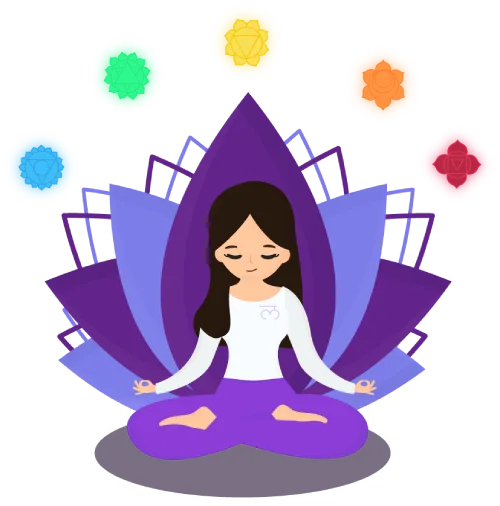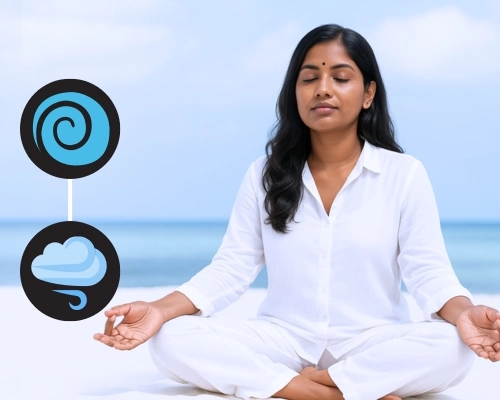Consult with Ayurvedic Doctor - Find out your Prakriti and get a Nadi Pariksha done.
Ayurveda is an ancient knowledge cultivated by the sages of India. It has been developed from various treatises and manuscripts and has made its way to becoming one of the ancient most but modern health care techniques. ‘Ayur’ means life and ‘Veda’ means science. Thus, the term ‘Ayurveda’ means ‘science of life’. The theories and notions of Ayurveda have been practiced since the past 5000 years. It recommends methods for appropriate living and longevity. It includes instructions to maintain good health as well as dealing with illness through yoga, treatments, herbal medicines, correct diet and lifestyle changes.
| Ayurvedic Treatment | List of Diseases |
|---|---|
| Abhyangam | Pain, Mental Stress, Gastric Problems, De-toxification, Immunity Problems, Weight |
| Shirodhara | Loss, Paralysis, Skin Problems |
| Kashayadhara | Sleep Problems, Insomnia, Stress, Hair Fall |
| Greeva Basti | Psoriasis, eczema, scalp lesions, hairfall |
| Janu Basti | Neck Pain, Neck Spondolysis, Neck Arthritis |
| Kati Basti | Knee Pain, Knee Arthritis |
| Spine Basti | Back Pain, sciatica, lumbar spondylosis |
| Kizhi | Spine arthritis, Spondolysis of spine |
| Mukha Lepam | Pain , Mental stress |
| Netra Tarpanam | Skin Care, Skin conditions |
| Padabhyangam | Vision problems, Eye strain, Headaches |
| Pizhichil | Pain, Mental stress, De-toxification, Gastric problems, Paralysis |
| Shringara | Pain, Mental stress, Immunity problems, Paralysis |
| Soundarya | Skin care treatment |
| Thalapothichil | Skin care treatment |
| Ubtan | Scalp and hair care |
| Udvartanam | Skin care, Weight loss |
According to Ayurveda it is possible for you to live a long and healthy life through intelligent co-ordination of your body (sharira), mind (mana), senses (indriya) and soul (atma).
Ayurvedic science revolves around the five elements (panchmahabhoot) i.e. earth (prithvi), water (jal), fire (agni), air (vayu), ether (aakash) that goes into the making of the three physical energies – Vata, Pitta, Kapha and the three mental energies – Satwa, Rajas and Tamas which inturn determines the constitution (prakriti).
"Ayurveda thus offers a unique blend of science and philosophy that balances the physical, mental, emotional and spiritual components necessary for holistic health."

Ayurveda is not just an Ancient Indian Medical system, but a complete guide to healthy living. It has been around for several thousands of years and has stood through the test of time. Ayurvedic physicians were doing surgeries and other complex medical procedures long back– while in modern science its a very recent phenomenon. The vedic philosophy believes that the entire universe is one – whether it is human beings, animals, plans or non-animate objects. Hence, there is interdependence on each other. Ayurveda believes in creating hamony of the human body-mind-soul with the surrounding and nature. Hence, the focus of Ayuveda extends far beyond healing physical ailments but to mental and spiritual realms of helping a person attain the highest self realistion.
Ayurveda believes that each individual has its own unique body constitution like the thumbprint. It is a blend of three body types that include mental, physical and emotional aspects. These are known as ‘doshas’ in Ayurvedic scriptures. These Doshas are further classified as Vata, Pitta, and Kapha.

Vata is formed by space and air. It controls all bodily movements such as breathing, speaking, digestion, and circulation. People with dominant Vata are quick thinkers and have swift body movements. Vata also drives the activity of the other two doshas.

Pitta arises from fire and water. It governs transformation through acids, enzymes, and bile. This dosha influences emotions like willpower, joy, and intensity. Pitta is also responsible for metabolism and sharp mental focus.

Kapha combines water and earth. It builds the body’s strength, shape, and stability. Kapha-dominant individuals show love, patience, and attachment. This dosha supports immunity, calmness, and emotional grounding.
Ayurvedic herbs are extracted from different parts of the plant – leaves, nuts, seeds, bark, roots and so on. There are thousands of such herbs and their combinations which are available as medicines. The method of processing & extraction also varies greatly – while some are extracted by boiling in water, some are used to make herbal wines and others are used directly for ingestion. Combination of herbs which are described in Ayurvedic scriptures are called “classical medicines” while those which have been formulated by pharmaceutical companies are called “proprietary medicines”. It is advisable to consult an Ayurvedic Doctor before starring any medication.